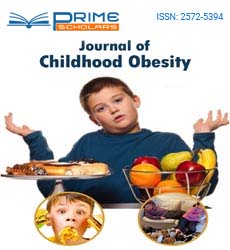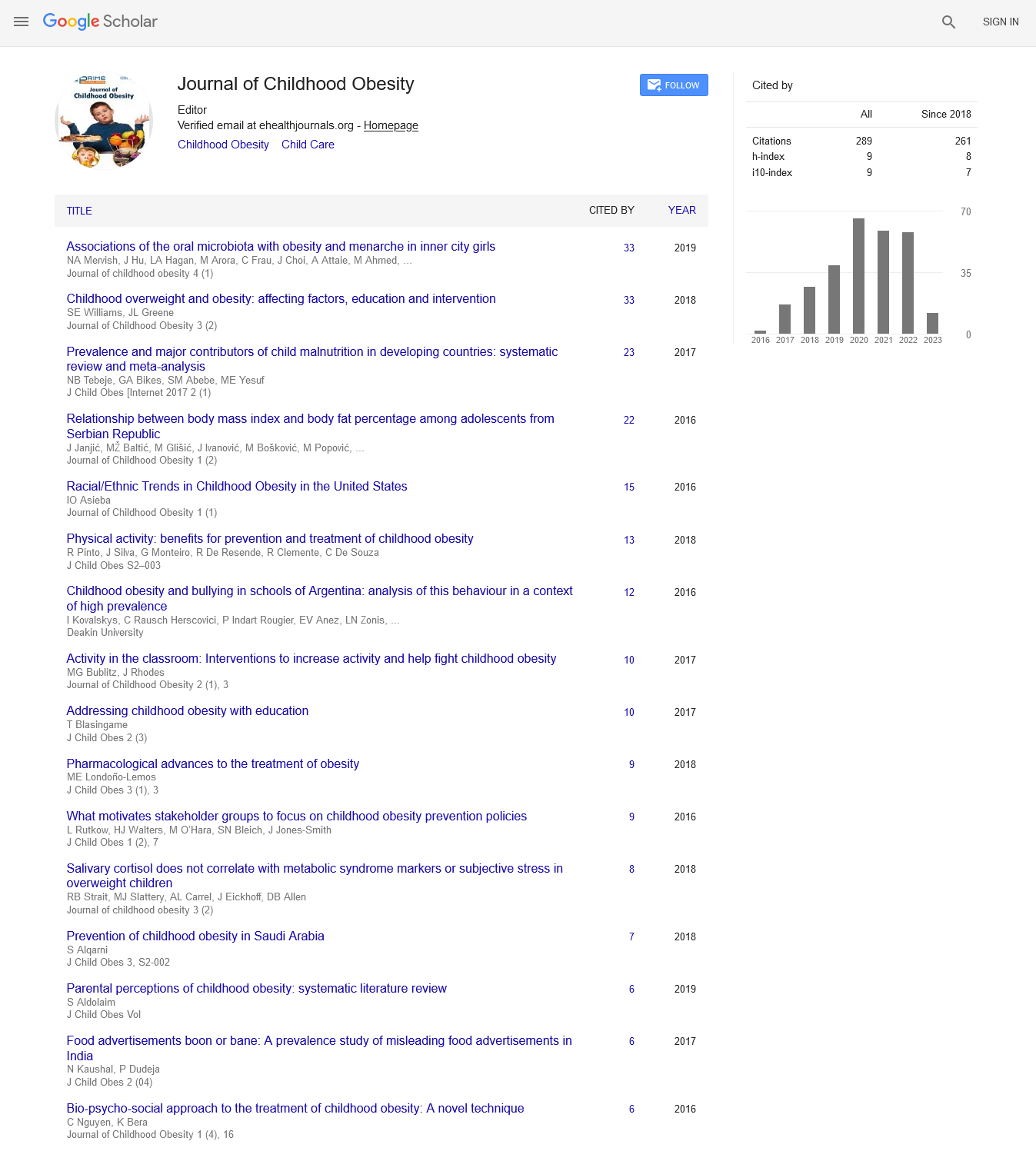Commentary - (2021) Volume 0, Issue 0
Randomized Controlled Trial Evaluating the Treatment of Binge Eating Disorder
Padmapriya Jani*
Department of Human Development and Family Studies, Maharana Pratap University of Agriculture and Technology, Udaipur, Rajasthan, India
*Correspondence:
Padmapriya Jani, Department of Human Development and Family Studies, Maharana Pratap University of Agriculture and Technology,
India,
Email:
Received: 02-Dec-2021
Published:
22-Dec-2021
Introduction
Feting eating diseases in the pediatric population can be
challenging for inpatient providers. With the high frequence
of these diseases in children and adolescents, it's critical that
pediatricians fete these diseases and connect these children and
families with available treatments. This composition provides
a review of the current individual criteria for pica, reflection
complaint, anorexia nervosa, bulimia nervosa, avoidant
restrictive food input complaint, binge- eating complaint, other
specified feeding or eating complaint, and unidentified feeding
or eating complaint as described in The Diagnostic and Statistical
Manual of Mental Diseases, fifth edition. Recommendations for
original medical evaluation and helpful webbing measures are
bandied [1].
Feeding and eating diseases (FEDs) are serious internal health
diseases that beget impairments in physical health, development,
cognition and psychosocial function and can go undetected for
months or times. They're characterised by perturbed eating
geste associated with enterprises about weight and shape or
by objectiveness in food, phobic avoidance or avoidance due
to sensitive aspects of food. Restrictive forms of FEDs lead to
significant weight loss taking intervention. Without specific
knowledge of these conditions, they can shirk discovery, delaying
time to opinion and treatment and potentially impacting
outgrowth. This review composition focuses on the crucial
factors involved in the psychiatric assessment and treatment of
four feeding or eating diseases (EDs) anorexia nervosa, avoidantrestrictive
food input complaint, bulimia nervosa and binge
eating complaint. They've been chosen for discussion as they're
most likely to be encountered in both a psychiatric and paediatric
setting. It emphasises the significance of a family- concentrated,
developmentally applicable and multidisciplinary approach to
watch. It doesn't address aspects of medical assessment and
treatment. Other feeding or EDs not included in this composition
are pica, reflection complaint, other specified feeding and eating
complaint and unidentified feeding and eating complaint [2].
Although binge- eating complaint may manifest in nonage,
a significantly larger proportion of youth report occurrences
involving a loss of control while eating, the hallmark point of
binge eating that predicts redundant weight gain and rotundity.
Grown-ups with binge- eating complaint frequently report that
symptoms surfaced during nonage or nonage, suggesting that
an experimental perspective of binge eating may be warranted. Therefore, loss of control eating may be a marker of prodromal
binge- eating complaint among certain susceptible youth [3].
The present composition offers a broad experimental frame
of binge- eating complaint and proposes areas of unborn
exploration to determine which youths with loss of control eating
are at threat for patient and aggravated geste that may develop
into binge- eating complaint and adult rotundity. To this end,
this composition provides an overview of loss of control eating in
nonage and nonage, including its characterization, etiology, and
clinical significance, with a particular focus on associations with
metabolic threat, weight gain, and rotundity. An abstract model
is proposed to further interpret the mechanisms that may play
a part in determining which youths with loss of control are at
topmost threat for binge- eating complaint and rotundity. Ways
in which treatments for adult binge- eating complaint may inform
approaches to reduce loss of control eating and help redundant
weight gain in youth are bandied [3].
REFERENCES
- Sacco B, Kelley U (2018) Diagnosis and evaluation of eating disorders in the pediatric patient. Pediatr Ann 47:e244-9.
- Mairs R, Nicholls D (2016) Assessment and treatment of eating disorders in children and adolescents. Arch Dis Child 101:1168-75.
- Tanofsky-Kraff M, Schvey NA, Grilo CM (2020) A developmental framework of binge-eating disorder based on pediatric loss of control eating. Am Psychol 75:189-203.
Citation: Jani P (2021) Randomized Controlled Trial Evaluating the Treatment of Binge Eating Disorder. J Child Obes. 2021, S6:2
Copyright: © 2021 Jani P. This is an open-access article distributed under the terms of the Creative Commons Attribution License, which permits unrestricted use, distribution, and reproduction in any medium, provided the original author and source are credited.
Competing interests: The authors have declared that no competing interests exist.

